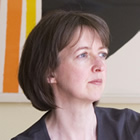A dual reason to celebrate
This year’s Sandford St Martin Award winners will scarcely have had time to hang up their certificates before another religious broadcasting competition comes along. This time it will be the European Television Festival of Religious Programmes, taking place from 11–15 June in the Dutch city of Hilversum, home to many of the country’s broadcasters.
Even though it’s been going since 1969, the Festival is not as well known in the UK as it deserves to be. That may have something to do with the fact that it takes place only every three years or so, and in a different country each time. Perhaps some assume too that, given how different are the broadcasting and/or religious landscapes of some of the participating countries, there is little makers of religious programmes in the UK can learn from their European counterparts.
But make no mistake. The Festival is a must for anyone interested in television programmes that tackle tough religious and ethical questions, show the triumph of the human spirit in the face of unimaginable adversity or enlarge our understanding of the world we live in. It’s also an opportunity to see such themes tackled by programme-makers who operate within a different set of social and broadcasting conventions from those we’re used to in the UK. For example, I’ve seen a number of programmes over the years on the subject of death or dying that took me a long way out my viewing comfort zone – but also moved and challenged me for that very reason.
Programmes at the Festival have a habit of challenging preconceptions too. I was fortunate enough to chair the jury at the 2007 Festival, where one of the winning programmes was a documentary from Irish broadcaster RTE about the impact of Catholic teaching on celibacy at the grass roots. If we jury members were expecting a less-than-tough approach from a programme made for a predominantly Catholic audience, we were wrong. Indeed one of the notable things about it was that the teaching’s strongest critics were not the disaffected, but devout Church members. Another winner was a programme I initially felt rather nervous about. Billed as a celebration of Christmas, it came from an Amsterdam synagogue – an audacious choice of location. But, thanks to the skill and sensitivity of the programme-makers, the broadcast proved to be a remarkable demonstration of how a festival ‘owned’ by one faith can also find resonance with people of different faiths, or no faith at all.
This year in Hilversum, in addition to the daily screenings of shortlisted programmes that form the backbone of the Festival, there will be an opportunity to reflect, with the help of eminent speakers, on how religious broadcasting can build bridges of understanding in a pluralist society. Among those contributing to this part of the programme will be the UK broadcaster and Sandford St Martin trustee Roger Bolton.
Both the Sandford St Martin Trust and the European Television Festival of Religious Programmes are committed to celebrating broadcast programmes that engage with the challenges and complexities of belief in today’s world. And this coming June – with the Sandford St Martin Awards, closely followed by the European Festival – there will be two opportunities for such celebration.
More information about the festival can be found at www.signis-wacc-tvfestival.eu





Leave a Reply
Want to join the discussion?Feel free to contribute!